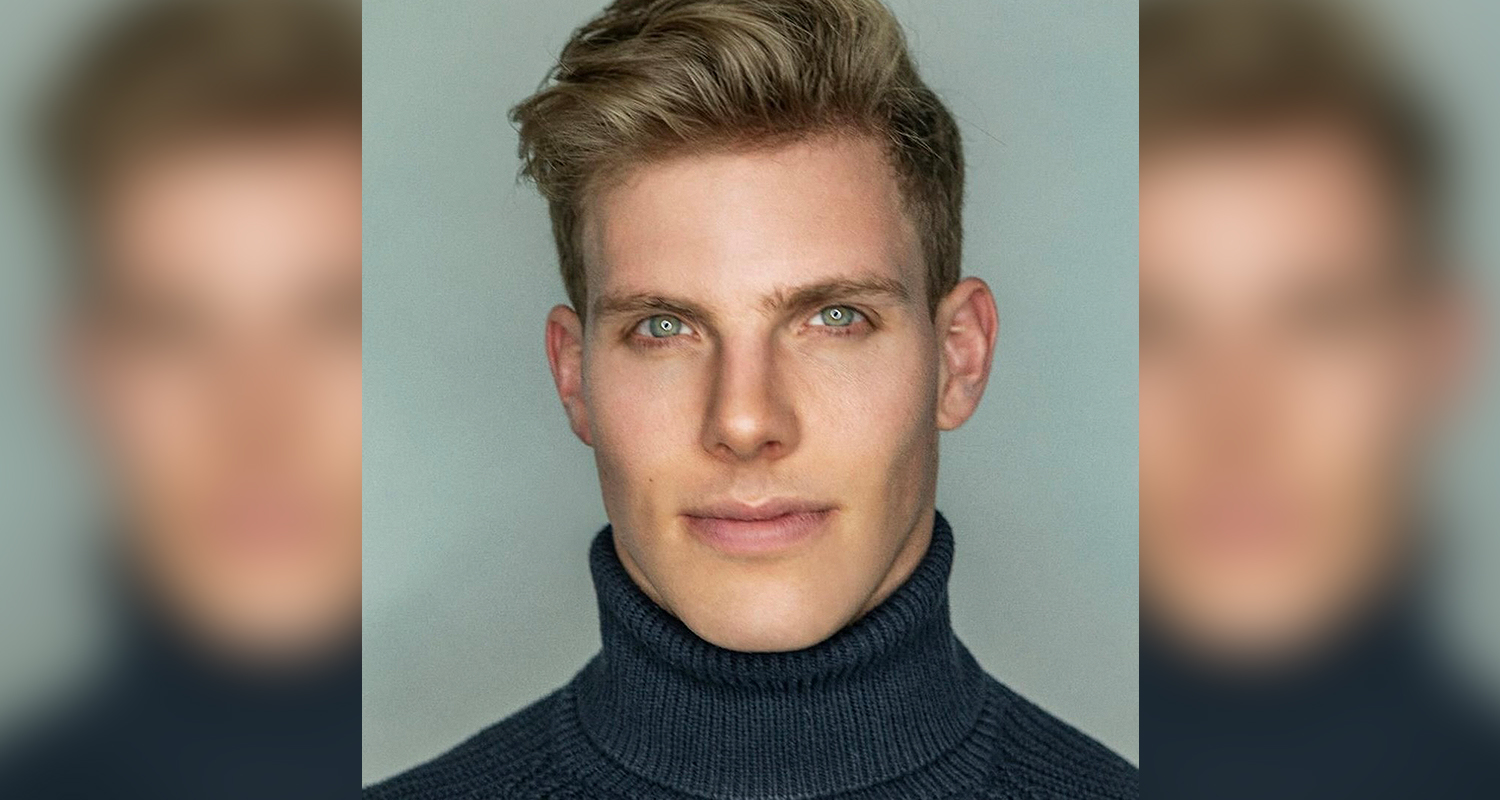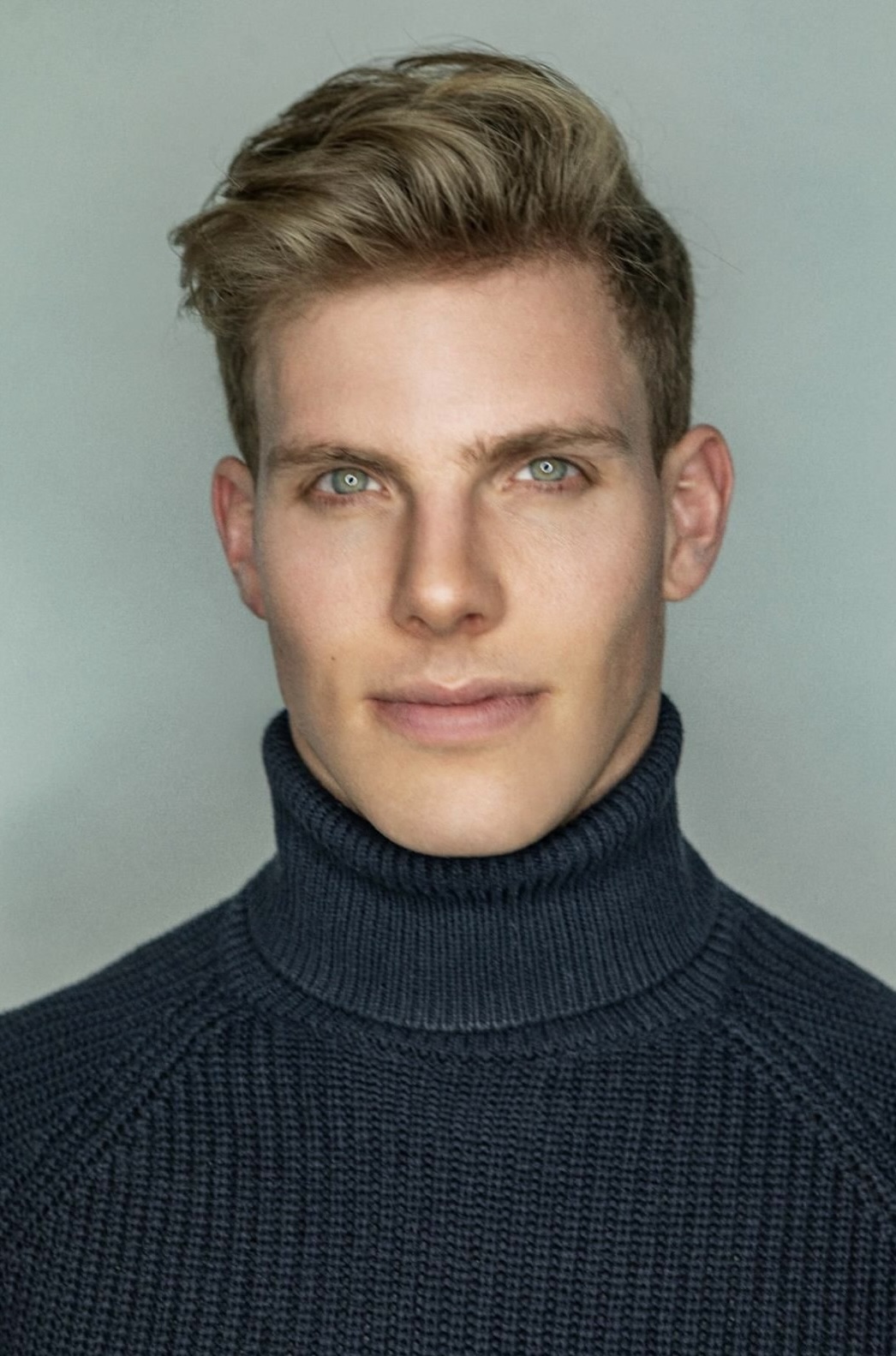Oliver Rieche from Reed Smith LLP on the power LGBTQ role models have to change the world
In partnership with myGwork.

Words: George Wright; Pictures: Provided
George Wright from myGwork spoke to Oliver Rieche from Reed Smith LLP about his belief in global networks, the need for more understanding between people, and the power that role models have to change the world.
Having just spent a month backpacking around Mexico, Oliver sits down to speak to me from his current location in Egypt. Having qualified during the pandemic as an associate at Reed Smith LLP, he has been given six weeks of holiday to celebrate and intended to use it to travel.
Oliver attributes his international outlook to his parents. “It was my parents who took me travelling as a young child. That’s definitely been a common thread up until today: I still travel with them abroad, which I love because it has inspired my international viewpoint on life.

Oliver Rieche from Reed Smith LLP (Photo: Caio Sanfelice)
“My dad spent the majority of his professional life working in Africa, and my mom moved to Egypt 13 years ago aged 50 to start a completely new career as a teacher.”
Born in Bad Honnef near Bonn, Germany, Oliver describes his childhood as “protected”, but the international influences are almost immediately visible.
Speaking over Zoom, he shares stories from his years growing up attending a boys’ school in New Zealand for a year and participating in over a dozen youth leadership conferences from Japan to the US, Switzerland, and Belgium.
The people he met on his journey inspired him with their own global visions, which encouraged his belief in global networks and what he describes as a “disbelief in borders”. Ultimately, it’s about recognising the privilege he has and wanting to use it to give back.
Travelling while being LGBTQ+ isn’t always easy, however. Having been in Egypt for 14 months, Oliver recognises that there are additional concerns when travelling, and you have to be aware of your safety.
“[When you arrive] you automatically want to start questioning the system. You want to throw it all overboard and tell everyone how to live and what’s right […] but then you start living here and realise the culture has little to do with European culture, and that you need to take a step back and see that it’s founded on different beliefs and cultural ideas, and you can’t just immediately demand change.”
He’s been living in Dahab, an oasis by the Red Sea that he describes as a “hippy town”, explaining that it, luckily, isn’t as socially conservative as some Egyptian cities, such as Cairo.
Thinking further on it, Oliver explains how fortunate he’s been while living there – for Pride month, he was able to perform a spoken word piece about his journey as an LGBTQ+ advocate to an audience of 50 people from the town.
Despite being worried about the potential repercussions, the reactions were quite the opposite: people hugged him, and one girl even felt moved enough to come out, too.
It’s all too easy from a Western perspective to split the world into “accepting” and “homophobic”, yet it is moments like these that remind us that the world is made up of millions of small pockets of human experience and that each are very different despite perhaps existing within the same territory.
For Oliver, coming out was, he describes, “non-typical”.
“I consider myself having never been closeted, but still coming out at quite a late age. I was 23 when I came out, and that was quite surprising to friends. They considered me to be confident and open – why couldn’t I come out sooner?”
Oliver suggests it has something to do with his upbringing. His parents are incredibly ambitious people: from a young age, Oliver had a clear and lined up career path ahead of him.
His father would give him articles to read about successful CEOs and businessmen to show him what he should professionally aspire to. However, intrinsically, Oliver was internalising what he saw: powerful, heterosexual, cisgender white men who came from traditional family models who had traditional families of their own.
He describes pushing aside “gay thoughts” in his teenage years because of the feeling that he needed to focus on becoming like the men he saw in those articles. It wasn’t until one day, sat in an airport, that Oliver came out to himself after having a conversation about it with a friend. He was immediately filled with courage: he wanted everyone to know.
When the plane landed, he sat his father down and explained he had something important to say. He broke the news to his father, unsure of what to expect, only for his father to pause for five seconds and say, “Oh, I thought you had some important news to share.”
Oliver says he couldn’t have asked for a better reaction.

However, coming out is not without its fair share of tricky steps to navigate. Oliver’s first boyfriend at the time was from the Middle East and incredibly closeted.
He says that not revealing who he was dating in order to protect his partner while coming out at the same time as starting his masters at Cambridge created a situation where – to those around him – he appeared to be saying: “My name is Oli, I’m gay, and I don’t want to meet anyone”.
Luckily, nowadays in Dahab, he rarely needs to hide who he is dating and can focus instead on just being able to live with confidence and authenticity.
From day one of his training contract at Reed Smith he was out, going as far as to email the firm’s LGBTQ+ network, PRISM, to tell them he wanted to be actively involved.
He went on to become co-chair of the network, leading a committee from across the London office alongside London office-managing partner Andrew Jenkinson while still a relatively new trainee solicitor, something he credits with supporting his development at the firm.
He feels excited at the thought of having been involved in putting on events to spotlight bisexuality at the workplace, raising awareness on trans issues, LGBTQ+ parenting, hosting a film screening on the importance of allies as well as a client summer reception to celebrate Pride month.
Oliver has been working at Reed Smith for three years now, after working as a paralegal at a human rights barristers chambers and a litigation firm as well as internships in diplomacy in Santo Domingo, at the UN Refugee Agency in Malaysia, a think-tank in D.C., and in European policy in Brussels.
Choosing to work in commercial law has not been the end of his interest in these areas though – he talks about the large amount of pro-bono work that Reed Smith offers to its staff, including opportunities to support organisations like Liberty and other human rights campaigns.
Recently, he led a team of 11 lawyers across four Reed Smith offices in Europe to draft advice for an LGBTQ+ charity in the Middle East with regards to different transitioning guidelines in each office’s respective jurisdiction, to be used as a lobbying tool for the charity.
From starting his training contract in 2018 to qualifying as a solicitor a year ago, he’s certainly been busy – but he considers it part of the work that has to be done to advance LGBTQ+ rights.
We, as a community, are part of a larger system, Oliver believes – fighting for and securing our rights.
“I’m often told ‘society is already heading in the right direction.’ I always say, ‘yes, but only because there are trailblazers out there who do the work, who create grassroots movements, who speak up.’ If it wasn’t for these people, we’d still be living in the Middle Ages, and that goes for any kind of human rights.
“It goes for women’s rights, it goes for religious rights, it goes for everything. I often get frustrated when I hear people say change happens naturally and organically: it doesn’t.
“I firmly believe that if it wasn’t for the members of our community in the 1980s who started the LGBTQ+ movement, we wouldn’t be speaking so openly and candidly right now.”
It’s difficult to disagree with him – at a time when our rights seem so precarious, perhaps what we need more than anything, are role models and changemakers. We need people with the courage to stand up, speak out, and support our community.
Oliver Rieche is an Associate at Reed Smith LLP, a proud partner of myGwork, the LGBTQ+ business community.
